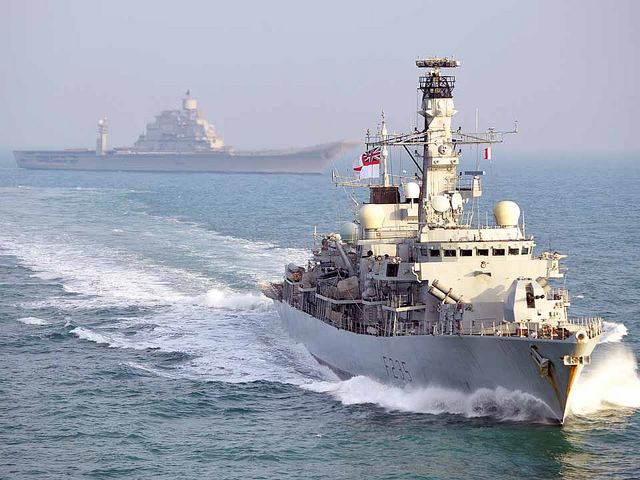Author response: Britain not a player in Asia?
Thanks to Brigadier Will Taylor (ret.) for an elegant summary of what seems to me to be the prevailing orthodoxy in Britain on this issue (in response to my piece here). The core of his argument is that Britain has important interests in Asia, and that those interests are growing. So it’s good policy to seek significant influence in Asia.
Will makes three main points. The first notes the strength of Britain’s interests in Asia, the second asserts that Britain can still achieve some objectives in the region, and the third questions my suggestion that Britain wants to be America’s ‘best friend in Asia’.
It’s certainly true that Britain has substantial interests in Asia, and they’re growing. The problem is, Britain can have interests but may still not have the heft to secure them.
For example, Britain has deep economic interests in the region. But it doesn’t follow that it has sufficient economic clout to get its way. Iceland’s economy is almost entirely dependent on the EU—nine of its top ten import and export partners are European (the odd one out is China). Despite this deep engagement with Europe, it’d be fanciful to suggest Reykjavik has much sway in Brussels, London, or Berlin.
Of course Will is right to say Britain has an interest specifically in Asian security. There’s a superpower competition unfolding here—everyone has a deep interest. But in the 20th century Belgium had a deep interest in European security, providing it with the motivation for engagement but not the capacity to determine outcomes.
The second point is about Britain’s capacity in Asia. There are gradations between being irrelevant and being important; London’s capacity is somewhere in the middle. Britain has been able to play a valuable role in HADR, and has some remaining partnerships in the region, typically with Commonwealth countries. Britain is certainly capable of pursuing a modest engagement strategy along those lines.
But it’s a big jump from there to the assertion that Britain is ‘strategically relevant’, or to the idea that ‘…a strategic adversary must consider the possibility not only that Britain might deploy a Queen Elizabeth Class carrier to a conflict half a world away, but to do so in the knowledge that it can, and when it’s in its interests, will.’
It doesn’t seem credible to me that China would be influenced by the prospect of deployment of a British carrier. That’s both because of the risks China could impose on the carrier itself, and because it doesn’t seem credible that Britain would commit such valuable assets to a conflict in the region. The cost/benefit calculation for Britain is simply too stark.
As Will says, ‘Britain isn’t going to come riding over the horizon with a military contribution that’ll shift the balance in a high-intensity war in Asia.’ It wouldn’t be sensible to place a carrier in a high-risk environment with no expectation of strategic effect. And if a carrier deployment isn’t going to shift the balance, lesser contributions will simply have lesser effect. That doesn’t look like playing a big role. So despite Britain’s deep interests in Asia, its capacity is limited.
On the last point, I think we agree. It’d be a good thing for Britain to question whether it’s important to London to be America’s best friend in Asia. But because America’s future role will be determined in this part of the world, and so many of its resources will be devoted here, Whitehall can’t expect to be Washington’s most important friend without being its most important friend in Asia. That’s a place that likely will be filled by Japan.
Redefining Britain’s international identity away from Macmillan’s idea of Greeks to America’s Romans is exactly what will be hard for Whitehall. And if that’s not possible, Britain risks skewing its view of its own interests, imagining a substantive role in Asia where one isn’t possible and expending resources to little effect.
There are some things Britain can do that’ll matter to Asia. They just aren’t in Asia. For example, Britain could back-fill for US forces in places like the Persian Gulf should any escalation in tensions place pressure on Washington to move forces to the Western Pacific. And London could push for a greater role for European countries in ensuring their own security, reducing Washington’s burden of security provision across the Atlantic. So Britain could certainly be important for Asia, but not important in Asia.
Harry White is an analyst at ASPI. Image courtesy of Flickr user Royal Navy Media Archive.
